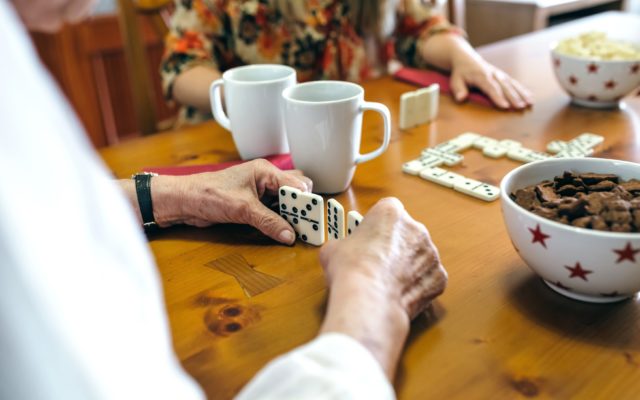What’s going on?
An elderly friend kept asking. “I am forgetful. I lost my keys. I can’t remember if I took my medications today. Is this a sign of something terrible?”. If you are still at a young age, you might be thinking this sounds a lot like your life. Not a big deal. But for someone in their senior years, there is always the nagging thought that it could signal something more significant. Perhaps dementia or Alzheimer’s disease slowly catching up? It is important to have the proper health care professionals involved to ensure that nothing is missed. In the meantime, it’s important to keep mentally vital. There are so many ways to keep an engaged and active mind. Here are some activities that may keep you or a senior family member interested and mentally stimulated.
Brainstorming
- Apps. Time to get an IPad. They are very practical when it comes to installing an app and besides, Ipads are like a big phone to play with. Only now you have larger text and a larger screen for activities. Check out cognitive apps for adults. These can range from games to something educational. It’s never too late to learn something new! Becoming familiar with a new devise such as an IPad or laptop can train your mind to work with something new as well. Ask a younger family member to help get you set up. They can help you find an app you can enjoy and set it up for you to use.
- Family. Staying engaged with kids and grandkids can be not only rewarding, but also mind stimulating. Sharing a hobby or discussing current events together can be a great way to start. Be open to thinking about different view points and perhaps topics that wouldn’t usually interest you. Don’t be afraid to reach out to a family member and ask for help. If you have been dreaming about going to a concert, sports event, a stroll in the park or a drive around town to look at old places, tell your family. They want to be part of your life and this can be very enriching for family as well. Being in a nurturing environment is important to feel secure and happy. Don’t hesitate to reach out.
- Groups. If there aren’t already groups in your community, there are ways to start one. Groups can range from book clubs to playing cards or chess or even something more creative, like art or croqueting. If this isn’t an option, consider actively engaging in conversation during meal times with neighbors, friends or family.
- Education. If socializing isn’t your thing, consider becoming engaged in something new all by yourself. Start learning a new language with simple games or apps on your IPad. Even if you only learn a few words at a time, it’s ok. Making progress at learning something new is great to keep the mind focused and also brings some satisfaction during long days.
- Physical activity. Taking walks or doing physical activity that has been approved by your doctor helps keep the blood flowing to vital areas including the brain. Besides, being outdoors and breathing in some fresh air is uplifting and inspiring. Talk with your health care providers about ways to add some exercise to your daily routine. Perhaps a water activity class is available in your area. If taking walks in the neighborhood is getting old, consider going on weekly outings with friends or family to explore a new area for a stroll around town, a nature path or a park. Colorado is a great place to get out in nature. The possibilities are endless.
Family is key
If you are a family member, it’s important to connect with your loved one’s healthcare providers to understand how to best support their prescribed treatment plan. For example, a person who had a stroke may require specialized care to help increase neurological stimulation to a damaged area of the brain. You could be a key part of a patient’s recovery if you follow directions. It could be as simple as the physician recommending you stand on the same side of a patient where they are experiencing deficits when talking to them to encourage movement on that side. Or perhaps a patient who has recently been diagnosed with dementia would benefit from specialized cognitive training. See how you can be involved. These can be special moments that you and your elderly family member will always treasure. Just remember that it’s important to connect with the doctors involved in your family member’s care. Everyone is different and may have a different prescribed course of treatment or care.
Keep moving forward!
Discover what works for you. Talk it over with your health providers and family to help guide you in choosing suitable activities. Talk to a coordinator in your nursing home or assisted living community about opportunities and your specific needs. Ask to speak with someone who specializes in memory care. Never give up. Always keep moving forward and learning new things!



My mom could use this. Can I forward it to her? Thanks. John
Hi there John! Absolutely, please forward to your mom and anyone else that could find it helpful. Have a great day!
Excellent tips, thanks! I have become very forgetful lately and need to keep everything written down.
Glad to see you found the article useful. Wishing you all the best!
One of my favorite things to do every morning is playing Sudoku on my phone. It helps keep my brain sharp. I also right everything down so that I don’t forget what someone tells me or what I was going to do for the day. Great tips. Thank you!
Thank you for the comment, Bethany! We are happy you enjoyed our article.